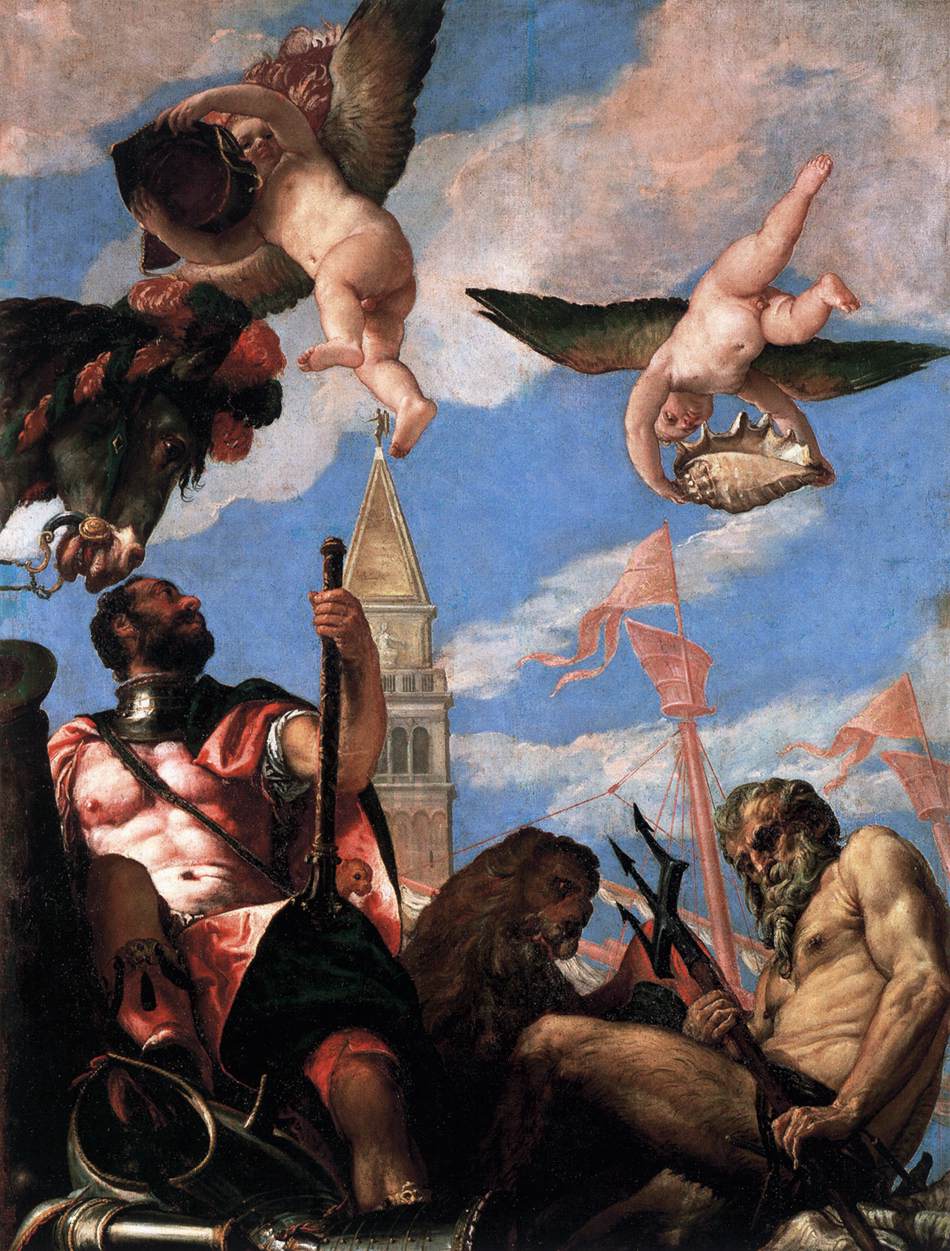Description
The painting "Mars and Neptune" by the renowned Italian artist Paolo Veronese is a masterpiece that combines mythological and allegorical elements in one impressive composition. Originally sized at 250 x 180 cm, this painting captures the viewer's attention with its visual richness and distinctive artistic style.
Veronese's artistic style is characterized by his ability to depict human figures in dynamic and realistic poses. In "Mars and Neptune", Veronese shows the gods Mars and Neptune in a symbolic confrontation. Mars, the god of war, is depicted in a defiant posture and shining armor, while Neptune, the god of the sea, stands tall with his trident in hand. The depiction of the gods in such powerful and confident poses reflects Veronese's ability to capture the essence of mythology in his art.
The composition of the painting is another interesting aspect to highlight. Veronese uses a diagonal perspective to create a sense of movement and depth in the scene. The figure of Mars is in the foreground, while Neptune is in a more distant plane, thus creating a sense of distance between the two gods. This spatial arrangement reinforces the idea of a confrontation between earthly power and divine power.
The use of color in "Mars and Neptune" is also notable. Veronese employs a rich and vibrant palette, with intense shades of blue, red, and gold. Bright, contrasting colors highlight the importance and majesty of the depicted gods. In addition, Veronese uses subtle shadows and lights to give volume and depth to the figures, thus creating an impressive three-dimensional effect.
The history of the painting is also fascinating. "Mars and Neptune" was commissioned by the Doge's Palace in Venice in the 16th century to decorate one of the rooms of the palace. The work was created as part of a series of paintings depicting the Olympian gods. However, "Mars and Neptune" stands out for its size and its dramatic depiction of mythology. The painting was acclaimed for its beauty and became one of Veronese's most famous works.
Finally, a little known aspect about "Mars and Neptune" is that the painting was the subject of controversy in the 16th century. The Inquisition of Venice questioned the representation of pagan gods in the Doge's Palace and Veronese was called to testify in court. During questioning, Veronese claimed that the gods were part of history and mythology, and that their inclusion in the painting was merely decorative. Fortunately, Veronese managed to convince the court and the painting was kept in its original place.
In conclusion, "Mars and Neptune" by Paolo Veronese is a fascinating work of art that combines a distinctive artistic style, dynamic composition, vibrant colors, and an interesting story. This painting captures the essence of the mythology and beauty of the Italian Renaissance, leaving a lasting impression on those lucky enough to behold it.

